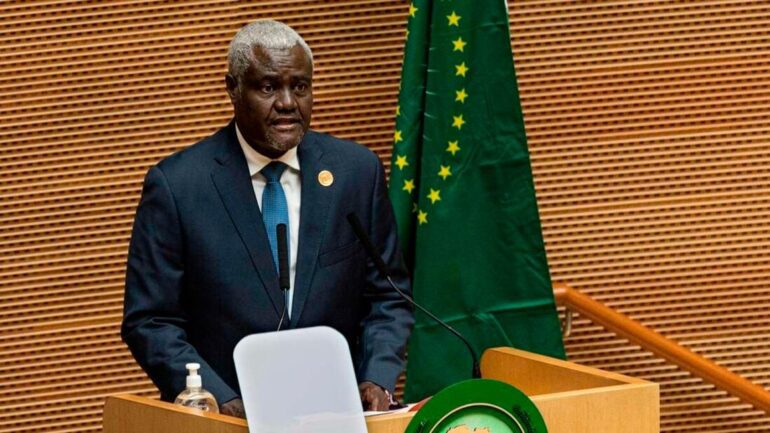TL;DR:
- Fraudsters employ AI tools to impersonate Moussa Faki, Chairperson of the African Union Commission.
- They targeted European capitals, orchestrating counterfeit video calls.
- Fake emails from the organization’s deputy chief of staff were used to arrange meetings.
- The African Union Commission emphasizes adherence to diplomatic protocols.
- Imposters’ intentions, possibly related to identity theft, remain unclear.
- Deep fake technology is on the rise, posing risks in the realm of misinformation and propaganda.
Main AI News:
In an unprecedented case of technological subterfuge, fraudsters have harnessed the power of artificial intelligence to mimic the voice and image of Moussa Faki, Chairperson of the African Union Commission. This audacious act of impersonation saw them target foreign capitals across Europe, potentially marking the inaugural diplomatic breach of the digital age.
The African Union Commission employs a formal communication method known as a “note verbale” when initiating discussions with global leaders. This protocol serves as the customary procedure for arranging meetings between the African Union’s leadership and representatives from foreign nations or international organizations. However, the malevolent actors behind this incident manipulated cutting-edge AI tools to fabricate the voice of Moussa Faki, facilitating several counterfeit video calls to European capitals under the guise of arranging official meetings.
Not stopping at voice impersonation, these cybercriminals also wielded fraudulent email addresses, posing as the organization’s deputy chief of staff. Their nefarious aim was to orchestrate virtual meetings between foreign dignitaries and Mr. Faki. Ebba Kalondo, the spokesperson for Moussa Faki, confirmed that the perpetrators proceeded to hold video calls with various European leaders, further enhancing their deception with deep fake video manipulations to imitate the chairperson convincingly.
The African Union Commission expressed deep regret over these alarming incidents, reiterating its unwavering commitment to diplomatic protocols. The commission emphasized its exclusive reliance on “Note Verbale” for high-level engagement requests and underscored the importance of official diplomatic channels, conducted through foreign embassies in Addis Ababa.
The true intentions of these imposters remain shrouded in mystery. Nevertheless, the African Union’s statement categorizes their counterfeit emails as “phishing,” suggesting a malevolent agenda that might involve stealing digital identities to access sensitive information. One of the victims of this elaborate ruse was Estonian Prime Minister Kaja Kallas, whose ostensibly arranged call turned out to be an elaborate hoax, a revelation confirmed by the country’s Foreign Ministry.
This incident casts a stark spotlight on the rise of deep fake technology, harnessed with sinister intent by cybercriminals. Such AI-driven manipulations of images, voices, and behaviors have gained notoriety, occasionally serving as a potent tool for entities seeking to disseminate misinformation and propaganda. As the digital landscape continues to evolve, safeguarding against such deceitful exploits becomes imperative for diplomatic and cybersecurity communities alike.
Conclusion:
The exploitation of AI for diplomatic impersonation highlights the evolving landscape of cybersecurity challenges. The incident underscores the need for heightened vigilance and cybersecurity measures in the global market, especially as deep fake technology becomes increasingly accessible to malicious actors. Organizations and governments must invest in robust authentication and verification systems to protect against such threats.

